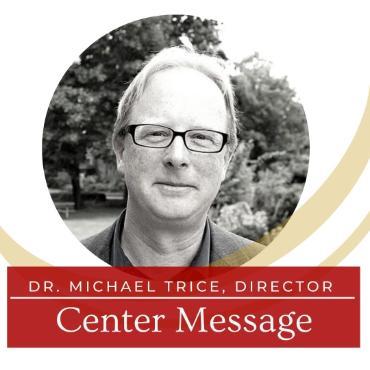No Caption Provided
April 5, 2022
Listening for Repair & Renewal

LISTEN HERE to the Center Message on Soundcloud
The Center for Ecumenical and Interreligious Engagement continues in its listening year, and in engaging the larger community of students, staff, and faculty, working with local to international ecumenical and interreligious partners, and preparing for the years to come. This month you will hear from the Center’s interview with Seattle University President, Eduardo Peñalver, who focuses upon university curriculum and the need to raise our empathy I.Q. in both the university and society. In addition, Center students interviewed many of their peers on the theme of Repair and Renewal – our theme for this month of Spring at the Center.
We also participated in the United Nations Faith for Earth Dialogue and are providing a link to that video with a focus on how universities respond to the climate crisis today. And finally, the Center spoke with prominent religious influencers and leaders on our connection to the environment even as April 22nd marks the anniversary of the birth of the modern environmental movement in 1970 – Earth Day. The Center Team hopes you can make effective use of these resources by listening and engaging with them.
Many of you reading or listening to this message will know all too well that the School of Theology and Ministry, or STM, at Seattle University is closing in a little over a year. You will also best know that the Center has been approved to provide non-credit bearing certificate programs, and this opportunity will take up considerable time and effort in the years to come. Already I am speaking with STM students, alumni, faculty, faculty emeriti, partners, our advisory council, and colleagues throughout the university, region, and country about what specifically we will offer. Discussions range from lay education inclusive of spiritual discernment to providing opportunities for clergy and other religious leaders who are facing and responding to the culture wars of our moment.
In these conversations, I draw heavily on what the faculty at STM confirmed as essential to both the development of curriculum and to the organization of the formation of the whole human being (body, mind, and spirit) in the School. There are six I want to mention here. We always refer to the first three as the three-legged stool, noting that all three are essential to the formation of the student. These are: first, the joy of learning and sharing theological knowledge as essential for understanding the world; second, the gift of spiritual formation in our lives; and third, the opportunity to consider and clarify one’s pastoral practice of leadership. Knowledge, formation, and leadership are each interdependent legs of a stool that also support one another. Facing the challenges of cultural divisions, of geopolitical challenges and violence, your sense of yourself in and of the world, your connection to spiritual substance and well-being, and your continued emergence as a leader, are all in a dynamic and mutually essential relationship that help you to meet those challenges with responses that are personally deepened and morally informed.
As a faculty, there are also three additional commitments that have been essential to the STM experience. These are: fourth a commitment to ecumenical and interreligious collaboration, fifth a commitment to growing multicultural competence, and sixth, a commitment to faith that does justice in our lives, communities, and the world.
Taken together, these six features of graduate theological education and formation are the precise sides of the singular frame for the Center’s future in the coming academic year. Certificate programs, a summer institute, webinars that are already being planned, broadening out the kinds of interviews we pursue and courses we create, and more. These framing features of the charism cherished at STM are essential to theological education in the future of the Center. I imagine the Center’s future within the heritage of these six commitments, beginning with the three-legged stool. In the months ahead, our work continues in this spirit.
Many of you have reached out to me with suggestions, questions, and insights to share. I welcome your input every step of the way. Please take a moment and continue to reach out to me. I do cherish that too. Thank you and wishing the absolute best to you, your loved ones, and your community.
Thank you,
Michael Reid Trice, PhD
Spehar-Halligan Professor and Director
Center for Ecumenical and Interreligious Engagement
School of Theology and Ministry
Seattle University


.png)